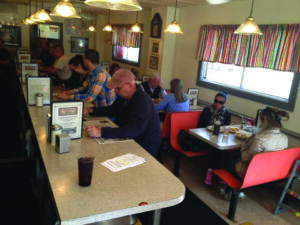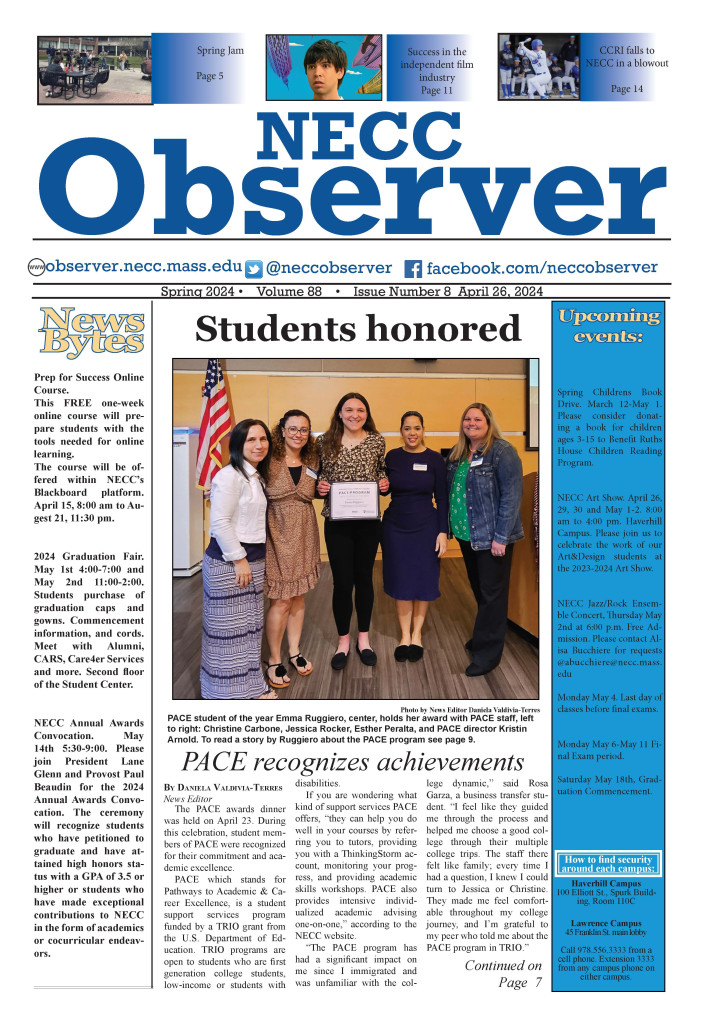
Editor’s Note: Journalism student Kia Dimakis wrote this profile of her grandfather, Antonios Dimakis, and his business, Mark’s Deli. Her father, Stavros Dimakis, is the current owner of the business.
Mark’s Deli’s original owner, Antonios Dimakis, recently turned 90.
Known for its bustling businesses in the downtown area, Haverhill has many old stories of immigration and many outstanding community members that have come from other countries to make lives for themselves in America, choosing to settle in Haverhill.
No different, Antonios “Tony” Dimakis came to the US from Chios, Greece in 1970. “I had nothing except a one-hundred dollar bill in my pocket, and the clothes on my back,” said Dimakis. “I got off the bus in downtown, saw a payphone to call my brother, and noticed a ‘help wanted’ sign on the diner,” he added.
Dimakis went on to purchase this diner, Mark’s Deli, in 1975.
Dimakis left behind three children and his wife at the time, who had to stay in Chios while he found work in America. “I did not meet my father until I was five years old,” said his son, Stavros, of Haverhill—the current owner of the diner. “I remember walking into the diner for the first time; I had never seen anything like it. Greeks didn’t eat eggs and bacon for breakfast,” he laughed.
Antonios, luckily, already spoke some English before he came to the states — having a background in the Greek military, it was a requirement. Dimakis said of this “I am very lucky to have known the language a little, otherwise, it would have been much harder. Haverhill is my home, yes, but some people did not like an accent — somebody different than them —e specially in the 1970’s.”
Dimakis acknowledges his privilege in being of European descent in the US, but he also describes the struggles of being an immigrant—ones which his children felt the most.
His son explained that he learned English by watching TV, trying to copy the accent so that the other children would not make fun of him. “I’m lucky that because my dad owned [Mark’s Deli] we had connections to people—cops, teachers, students’ parents. It’s hard being an immigrant. I admire my father so much for the groundwork he laid for us. And how he has served this city for decades.”
Mark’s Deli is one of the rare few buildings left in Haverhill that is untouched by renovations. Serving the community since 1975, it does not look much different than it did almost 50 years ago.
A regular customer since its opening, Pete Miller, chimed in, saying “I think it’s important for places like this to stay open. It’s a staple in our town, you know, and a great place to work, eat, meet people. It’s got everything.” He joked.
Although Dimakis turned 90-years-old and has been retired for years, he still frequents the diner daily. “I like to come in, see all the familiar faces, have my cup of tea, and enjoy the fruits of my labor. For years, this is all I have wanted,” he said.
Dimakis is a firm believer in the support of immigrants making a living in Haverhill. He claimed immigrants are “the backbone of the city, and the heart of delicious foods.” When asked about the importance of support for young immigrants in positions such as his own in the past, Dimakis said “without support, there is nothing. They are our future, our friends, our neighbors.
And this is what I have made sure my family business stands for. Our door is always open, too,” he laughed.

